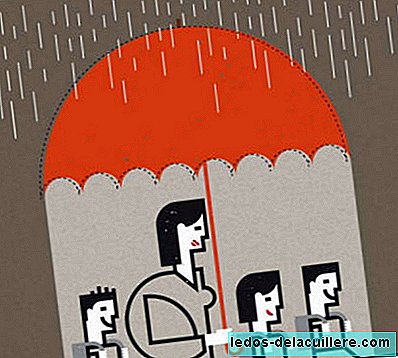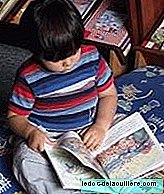
I found a fantastic document edited by the Union of Cooperatives of Teaching Valenciana. Is called 'Society needs ethically committed teachers' , and presents the framework of reflection that they propose about the meaning and purpose of education and training 'from beginning to end of the life of the students, who are women and men of the future'
This union brings together a total of 75 educational centers (in Alicante, Valencia and Castellón) between nursery schools, nursery schools, primary and ESO schools, music education centers or university schools; They are privately owned or arranged. Among its values and principles are that they are shown as democratic, active, respectful to the difference, environmentalist or rooted in the community. 'Society needs ethically committed teachers' is actually a statement that appeals to the ethics of each of the teachers involved in these centers (and surely to the rest), and states that the future of education is in teachers.
Why they are the ones that last in the educational centers (together with the rest of the social and educational agents that make them up). They are the essence of educational action and the protagonists of change, as well as the creators of the new methodologies.
For my part, and with no intention of contradicting this text, I dare to say that although it is true that teachers should position themselves as drivers of changes in education, all this is motivated by the need for changes that society experiences (with the children and the families at the head). So fathers and mothers should encourage all those 'ethically committed' teachers with whom we meet, to turn needs into realities, and congratulate them on the achievements they achieve.
From the UCEV they emphasize that the commitment of their teachers is specified in eleven points of which I share with you the following:
They must procure a affective social climate, within the necessary limits of coexistence, with an ethical attitude that is a stable reference for students, families and environment.
They will be able to foster participatory leadership based on trust and honesty, capable of promoting quality management, favoring a pleasant and productive work environment, which enhances participation and responsibility.
They live with passion what they do and it helps them to be happier. To achieve this, we must overcome the barriers that deprive people of their right to feel proud and satisfied with a job well done.
This is our commitment as professionals dedicated to achieving the utopia of improving the world, of making it more habitable, more human. Our statement invites the educational society, without exclusion of ownership, confessionality or identity
These teachers they can create the necessary conditions to convert centers into learning communities, in institutions that generate culture, so that the society we serve is directly involved in our educational projects.
And they are able to put young people in permanent contact with reality, because schools are not only a place of academic instruction, but, above all, spaces of life and socialization, of cultural development that acts in the environment.
They want develop in our classrooms scientific, critical and creative thinking. And that their students are competent, with a base of rigorous knowledge and effective strategies, that knows how to think and act in important situations of life, and that knows how to do it with ethical criteria, typical of free, educated, autonomous and responsible people.
The educational projects of the UCEV are based on both values education and secularism with the purpose of helping people build their lives in a rational and autonomous way in a modern, democratic and progressive society
The values expressed through this document have pleased me because they have a very positive development aimed at enabling the inclusion in the educational processes of the students, and improving coexistence among the members of the educational community.












